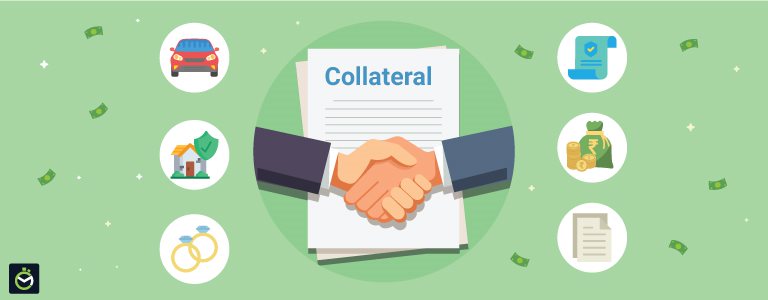Collateral Loans
know about Collateral Loans
Collateral loans are loans which require the borrower to pledge an asset or security to avail the loan. Home loans and car loans are the most common examples of Collateral loans where the borrower will be required to pledge the vehicle or house to be purchased as collateral, which then become Collateral debt. In case the borrower defaults on their loan repayment, the lender has full right to take possession of the collateral/Collateral debt. A Collateral loan is one of the best and assured sources of obtaining a high volume of funds.
There is a type of loan (under the category of Collateral loans) known as a non-recourse loan which protects the buyer. Under this loan, the bank has no further right to claim anything from the borrower apart from the asset pledged as collateral.
Foreclosure is the legal process by which banks auction/sell collateral property to pay off defaulted debt.
Repossession is when property (like a car) is taken back by the bank when payments on the same property are defaulted. This is for vehicle loans and loans for business assets. Example: If you buy a new car on loan and aren’t able to continue to make payments, the bank will come take your new car away, and you will forfeit all EMIs paid up to that date.
What is the purpose of having Collateral loans in the market?
When there are unCollateral loans readily available, why would a person chose to take up a Collateral loan? There are two primary reasons, from the point of view of the lender and the customer.
Lenders are relieved of some of the potential financial burden and loss that they could incur as a result of default on payments.
Borrowers are eligible for higher loan amounts that are given on more favourable terms and lower interest rates as they have pledged an asset as collateral.
What are the types of Collateral loans, and the collateral required?
Mortgage Loans are Collateral loans that pledge property as collateral
- Nonrecourse loans
- Car loans
- Home loans
Most Collateral loans (home loans, car loans, business loans to purchase large assets) are sanctioned against a repossession clause, which should generally work for the benefit of the borrower, but more often than not, works in favour of the bank.
Types of Personal loan in India
- Agriculture Loan
- Loans for Unemployed
- Loan Against Property
- Business Loan
- Marriage Loan
- Small Business Loans
- Same Day Loans
- Personal Loan for Self Employed
- No Credit Check Loans
- Bad Credit loans
- Personal Loan for Low Cibil Score
- Home Improvement Loan
- Personal Loan for Students
- Loan against Credit Card
- Loan Against Fixed Deposit
- UnCollateral Loans
- Long Term Loans
- Medical Loan
- 3 Month Loans
Features of Collateral loans
Loans are given against the title of ownership of assets, which will be used as collateral (like homes, vehicles, assets, property).
Lower interest rates as compared to unCollateral loans, because the bank has a higher level of confidence in your ability to repay.
More flexible repayment options than regular loans.
Option of fixed rate and variable rate.
Loan approval is faster.
Customizable loans to cater to specific needs.
These loans are available to non-salaried individuals.
There is no need for a guarantor for these types of loans.
Banks and lenders can repossess assets for which loans were taken.
Improves CIBIL score once Collateral loan has been repaid in full. More favourable than unCollateral loans.
Eligibility criteria
You must meet the following requirements to be eligible for a Collateral loan:
Applicants must have reached the age of 18 years or older.
Applicant must be a resident of India.
Most banks and lenders require the applicant to have a minimum annual income of Rs.3 lakh per annum.
Income can be generated from regular salary, non-salaried income and business income.
For loans based on business income, the business must have been running and generating a profit for the last 3 years.
Applicant must have assets, whose value must match or exceed value of loan required.
Documents required
You will, of course, need to submit a bunch of documents to the lender or bank, so that they can establish your identity, address, and other details. Documents you will require for different kinds of Collateral loans are:
Mortgage loan:
Proof of identity – This should be an official document which contains your name and photograph. Could be either your driving license, passport, voter’s ID, PAN card, Employee ID (if the company is registered), etc.
Proof of age – Should be a verifiable document that determines your age, such as a birth certificate, passport, voter’s ID, etc.
Proof of income – This should be an official / certified document which contains the details of your income and tax paid (TDS). Could be either your salary slips for the past 3 months, or Form 16 duly filled in and attached to a salary certificate.
Proof of residence – This should also be a certified document that verifies your residential address in the eyes of the law. Could be either your phone / internet bill, rental agreement, bank account statement, etc.
Original property documents of the property that is being pledged as collateral against the loan.
Bank statements for the last 6 months.
Guarantor (optional).
Copy of lease agreement for LRD (Lease Rental Discounting).



